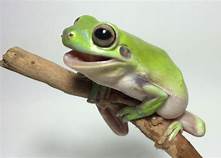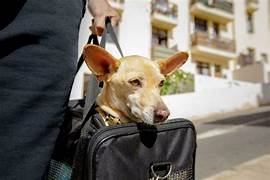Where Can I Buy a Frog For a Pet?
Frogs make fascinating and rewarding pets due to their unique behaviors, diverse species, and relatively low maintenance care. Whether you're a first-time pet owner or an experienced amphibian enthusiast, choosing the right source for your pet frog is crucial for its well-being and longevity.

Local Pet Stores
Many local pet stores carry a variety of frog species, both common and rare. Before purchasing a frog from a pet store, consider the following factors:
1. Store Reputation: Research the reputation of the pet store and read reviews from other customers to ensure they provide healthy animals and adequate care.
2. Knowledge of Staff: Ask the store's employees about their knowledge of frog care and handling. They should be able to provide you with accurate information about the species you're interested in.
3. Animal Health: Observe the frogs in the store's enclosures for any signs of illness or stress. Make sure the animals are active and responsive, with clear eyes and smooth skin.
Online Retailers
Several reputable online retailers offer a wide selection of frog species, including rare and exotic varieties. When purchasing a frog online, keep the following in mind:
1. Seller Reputation: Read reviews and check the seller's history to ensure they have a positive track record of providing healthy animals and excellent customer service.
2. Shipping Conditions: Ensure the seller uses appropriate packaging and shipping methods to ensure the frog's safety during transit. Live animal shipping should adhere to strict temperature and humidity regulations.
3. Health Guarantee: Look for sellers who offer a health guarantee or a trial period to ensure the frog arrives in good condition and remains healthy after purchase.
Frogs as Pets
Frogs require specialized care and a suitable habitat to thrive in captivity. Here are a few things to consider before bringing a frog into your home:
1. Species Selection: Choose a frog species that is suitable for your experience level and lifestyle. Some frogs require more specialized care and a more elaborate setup than others.
2. Habitat Setup: Research the specific habitat requirements of your chosen frog species and provide an appropriate enclosure with adequate space, appropriate substrate, humidity, temperature, and hiding spots.
3. Diet and Nutrition: Frogs have varying dietary needs depending on their species. Ensure you provide the correct type of food, such as crickets, mealworms, or fruit flies, and supplement their diet with vitamins and minerals as needed.
4. Regular Checkups: Schedule regular checkups with an experienced veterinarian who specializes in amphibians to ensure your frog's health and well-being.
Remember, owning a frog is a long-term commitment that requires dedication and proper care. By choosing a reputable source, providing an appropriate habitat, and meeting your pet frog's unique needs, you can create a healthy and harmonious environment for your new amphibian companion.
Declaration: All article resources on this website, unless otherwise specified or labeled, are collected from online resources. If the content on this website infringes on the legitimate rights and interests of the original author, you can contact this website to delete it.





